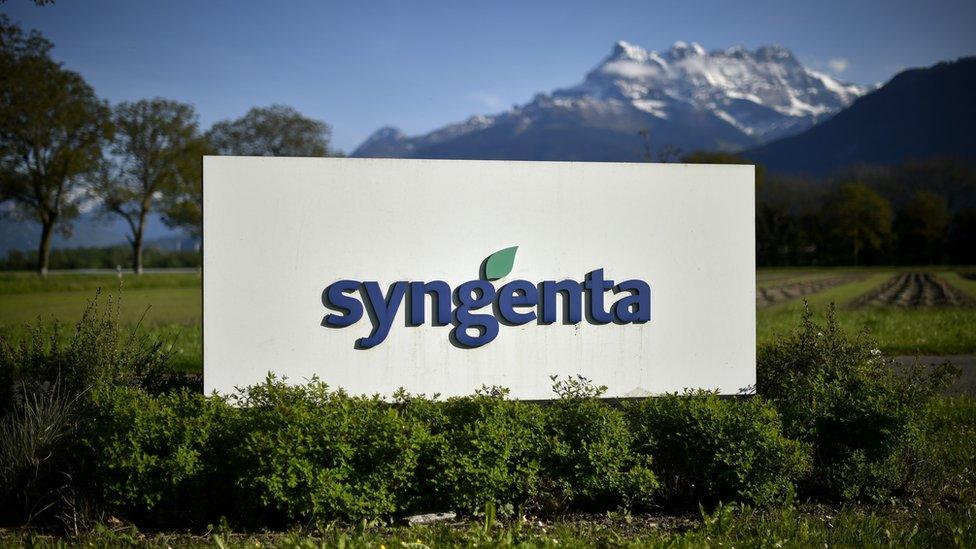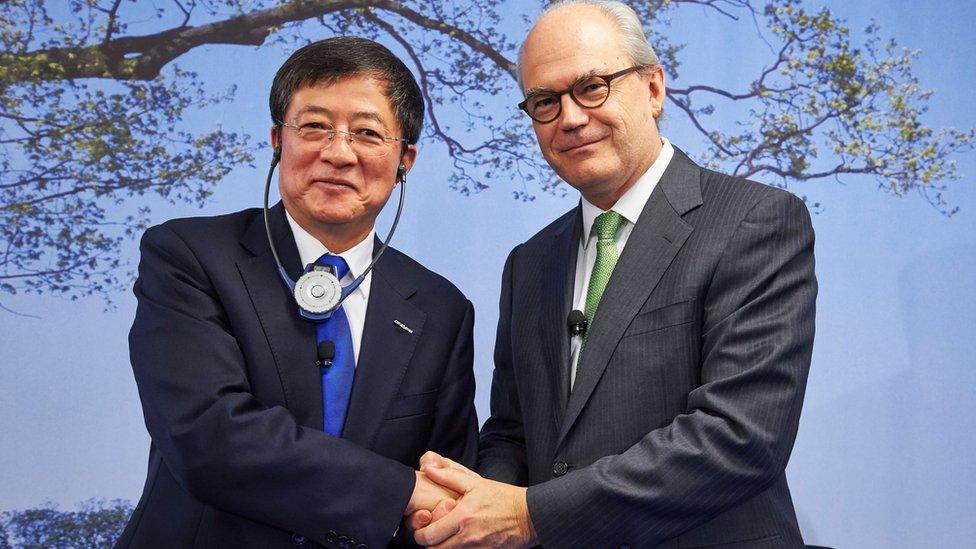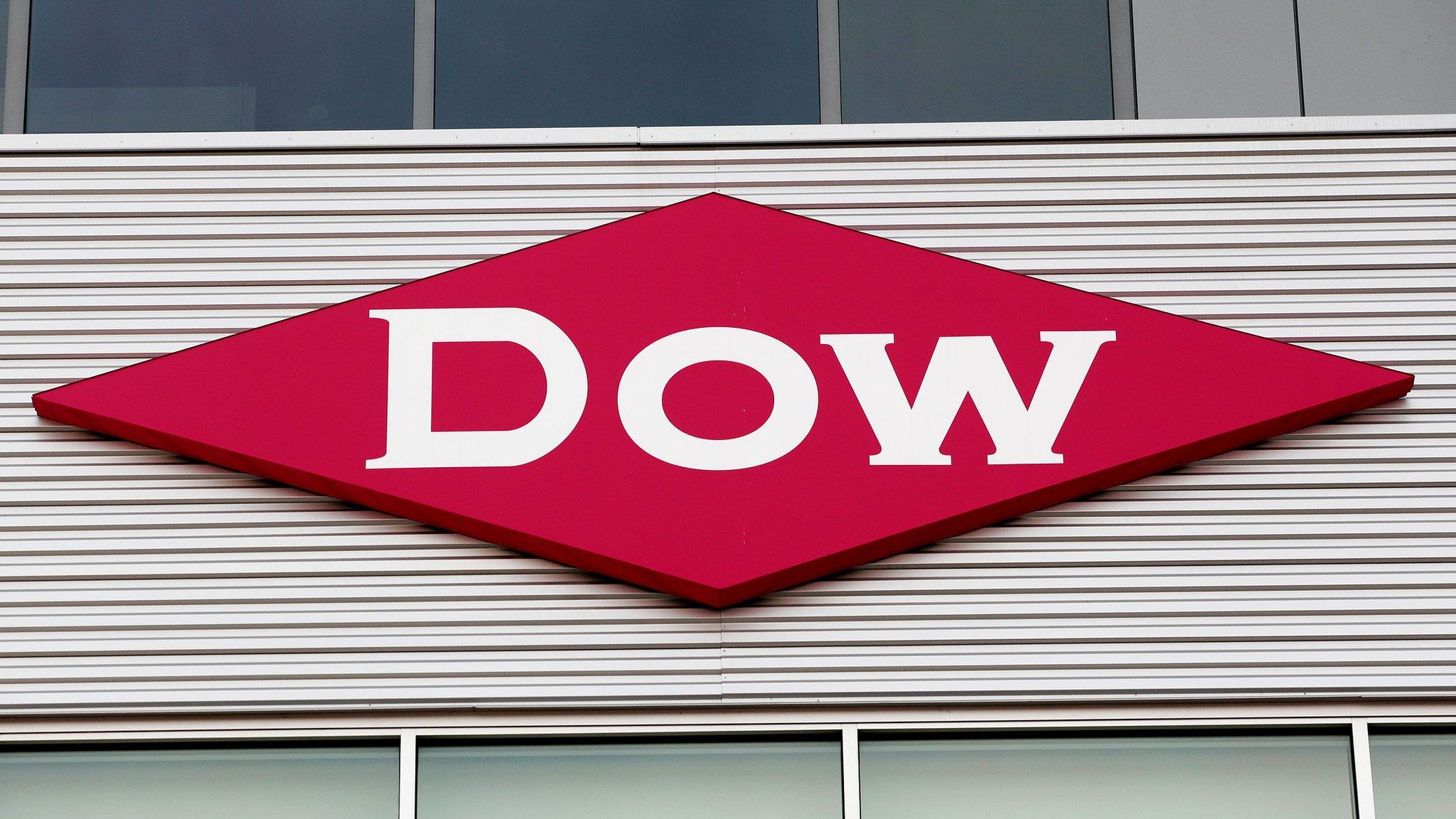Syngenta denies $43bn deal is a Chinese nationalisation
- Published

The chairman of Syngenta has denied that the proposed $43bn (£30bn) takeover by ChemChina amounts to a Chinese nationalisation of the Swiss agribusiness giant.
The deal would be the biggest foreign purchase by a Chinese company.
State-owned ChemChina has offered 480 Swiss francs a share in Syngenta and the stock rose 5.8% to 415 Swiss francs in Zurich on Wednesday.
The Swiss company said it was unanimously recommending the offer.
"This is absolutely not a China nationalisation," Syngenta chairman Michel Demare told CNBC.
"ChemChina has a fantastic track record of having not only bought companies outside of China, but also having kept investing in them and developing them and keeping the culture and values in place and I'm absolutely convinced that the same will happen here."
Mr Demare told analysts that ChemChina was "very interested in securing food supply for 1.5 billion people and as a result, knows that only technology can get them there".
The company would remain based in Switzerland, reflecting its attractiveness as a corporate location, he said., external

Analysis: Theo Leggett, business correspondent
China's economy may be losing steam, but state companies are still on the acquisition trail. Beijing appears determined to secure strategic assets around the world, and low commodity prices have made foreign firms attractively cheap. ChemChina's bid for Syngenta follows its $8bn takeover of the Italian tyre maker Pirelli last year.
So why does China want Syngenta? Food security is likely to have a lot to do with it. The country has a growing population, agricultural land is shrinking under pressure from urban expansion and farmworkers are migrating to the cities.
Syngenta is a key producer of genetically modified seeds and that expertise could help China increase food production and reduce pesticide use. However, that depends on the government winning over a public known to be concerned about potential health risks from GM crops.
The deal itself may face opposition from American regulators - not on competition grounds, but because Syngenta does billions of dollars worth of business in the US, and Chinese influence could be seen as a potential threat to American food security.
It is also likely to annoy the US giant Monsanto, which had its own bid for Syngenta rebuffed last year.

Syngenta shares have risen almost 40% in the past 12 months following a $46bn takeover bid from Monsanto last year.
The company rejected its approaches, leaving some investors unhappy that Syngenta had not entered into talks with the US company.
Chief executive Mike Mack resigned in October - two months after Monsanto ended its pursuit.
However, a combined Monsanta/Syngenta would have faced considerable regulatory hurdles, as it would have create the world's biggest seeds and crop chemicals maker.
ChemChina, in contrast, does not have a big agricultural chemicals business, but will still need regulatory approval in the US and Europe.
Syngenta, however, remained below the agreed price, with some brokers saying the deal carried high execution risks.
Baader Bank warned in a note: "There are still risks for the deal which might delay the takeover process." Those risks included political opposition in Switzerland and possible moves by competitors to complicate the takeover.

Syngenta chairman Michel Demare and his ChemChina counterpart Ren Jianxin
Chief executive John Ramsay said he did not expect any major difficulties. "Syngenta is the world leader in crop protection," he said.
"This deal will enable us to maintain and expand this position, while at the same time significantly increasing the potential for our seeds business."
ChemChina chairman Ren Jianxin said talks had been "friendly, constructive and co-operative". He will become chairman of the Swiss company and four of its existing directors will be on the 10-member board.
The Chinese company owns a variety of businesses, including Italian tyremaker Pirelli, German machinery maker KarussMaffei and Israel's biggest pesticides producer.
The deal would be the second-biggest takeover in the chemicals industry in the past year after the $130bn Dow Chemical/DuPont merger announced in December.
- Published11 December 2015
